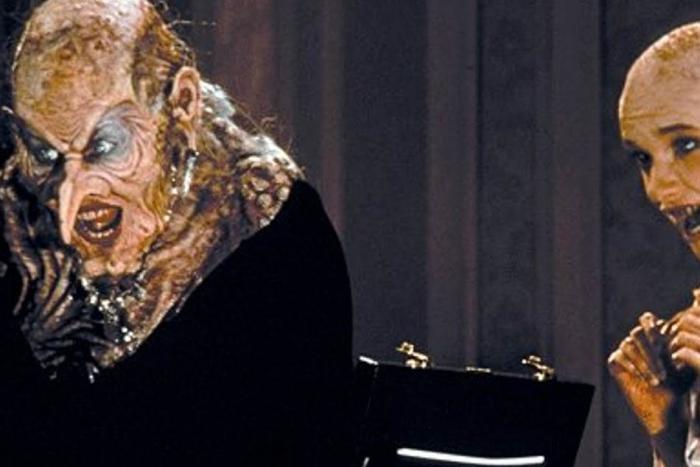Jonathan Franzen’s point about e-books is that you can spill water on a paperback copy of Freedom and it’ll still work. For those who grew up with paper and ink, the electronic book carries with it some unspecified threat of loss. Franzen said as much last year at the Hay Festival in Colombia. “Everything else in your life is fluid,” he said, “but here is this text that doesn’t change… [and] I do fear that it’s going to be very hard to make the world work if there’s no permanence like that. That kind of radical contingency is not compatible with a system of justice or responsible self-government.” In other words, the Kindle is driving us to anarchy in which sooty children in rags feast on the bones of their elders because Travels With My Aunt is only on iPad.
Where Franzen fails is in mistaking the train for the journey: the permanence of the book is not the same as the permanence of the text and what it means. One is a vehicle through which the other is experienced, processed, made personal. A book haunts not because it’s on paper and still works when you soak it but because it’s been read: after that, it can’t be taken away.
A read book is permanent, even if some of the details disappear with. I’ve read Emma but can’t remember much about it except that everyone has a governess and sews. But if my own work-in-progress concept of empathy is based on a lifetime of misunderstanding other people, it’s also been informed, just a tick, by Emma and the other novels which dramatize the folly of vanity. The details are gone but the ideas remain. Franzen is wrong: books are defined not by format but by the vagaries of art, through which something mystical sneaks into the reader’s mindand then won’t go away.
This is the experience of Hanta, the narrator of Too Loud A Solitude by the Czech writer Bohumil Hrabal, self-published in 1976, and then officially in 1989 when the Iron Curtain melted. Hanta is a trash collector. His job for 35 years has been to gather Prague’s waste paper and crush it with a machine into bales for the landfill. Every day in his basement workroom he sees “heaven-sent horns of plenty in the form of bags, crates, and boxes raining down their old paper… wholesalers’ wrappings, out-of-date theater programs, ice-cream wrappers, sheets of paint-splattered wallpaper, piles of moist, bloody paper from the butchers’…” and of course books. Some of the books he keeps for his bulging shelves at home, but others he reads and then chucks into the compactor. Camus, Hegel, Kant: once read, their work is done. Once read they are like the ice-cream wrappers.
“How much more beautiful it must have been in the days when the only place a thought could make its mark was the human brain,” he says, “and anyone wanting to squelch ideas had to compact human heads, but even that wouldn’t have helped because real thoughts come from outside and travel with us like the noodle soup we take to work; in other words, inquisitors burn books in vain. If a book has anything to say, it burns with a quiet laugh.”
At home, Hanta has three tons of books that he’s saved from the trash. Like a collective Sword of Damocles, they threaten to tumble off their shelves, to suffocate him while he sleeps. They do not constitute a library. In fact they will become raw material for his compactor when he’s retired and can crush books in his spare time, “when I feel inspired,” he says, to create beautiful bales of books decorated with sequins and confetti which he’ll display in his garden like sculptures. They’ll have served their purpose and earned the right to a decent burial.
For Jonathan Franzen this would count as sacrilege: books are holy relics to be preserved and worshipped. Hanta knows better. Only unread books constitute sacrilege. One doesn’t drink scotch to enjoy how the light plays on the empty bottle. Hanta is a great drinker as well as a great reader: “Because when I read, I don’t really read; I pop a beautiful sentence into my mouth and suck it like a fruit drop, or I sip it like a liqueur until the thought dissolves in me like alcohol, infusing brain and heart and coursing through the veins to the root of each blood vessel.”
I can look at the unread books on my own shelves and see them as unopened bottles. Something’s standing in the way: the anxiety of not being up to the task, they’re too hard, I’m too dense, they’ll disappoint me, there are other books I want to get to. This is a betrayal of the author who simply wants me to pull the cork and get plastered. Franzen is a conservative who equates reading with religious ritual, with the preservation of justice and sound government. Hanta is a working man who falls in love with a gypsy girl, builds her a kite, thrills her with its magic. He gets drunk on words (and pitchers of beer) and understands life as a fleeting breeze of books, kites, gypsy girls, love, heartbreak, beer, the daily business of crushing paper into bales. It matters because it’s all ephemeral, not despite the fact. Permanence is a fantasy. Nothing lasts. That’s the point, and the beauty, of Hanta’s life. Even his solitude is loud: it roars with memory and possibility.
Of course Too Loud A Solitude can be read as a political parable. Hanta discovers a new paper-crushing plant in Prague that will one day put him out of work: scores of workers in uniforms and rubber gloves (God forbid, they don’t even touch the paper and books they crush) turn out bales by the truckload. Books are destroyed before they’re read. This is Bohumil Hrabal’s story too: Too Loud A Solitude was banned in Czechoslovakia when it first came out, presumably for its critique of book banning.
We can imagine Jonathan Franzen telling us: this is what happens when books are left to the mercy of history and the clumsy hands that create it. But he’s too quick to see books as fragile, on the verge of extinction. Bohumil Hrabal just wrote, and left the rest to history: print it, don’t print it, burn it, whatever. This book, he might’ve said, will be read by someone, someday. And the delivery system doesn’t matter. Franzen is a great novelist and a provocative essayist, but when it comes to books he’s an overweening parent. Let them breathe on their own, fail on their own, and survive for all the right reasons. There will always be Hantas who’ll find them and drink them.
The Lost Library: forgotten and overlooked books, films and cultural relics from Tom Jokinen’s overstuffed Ikea bookshelves.





